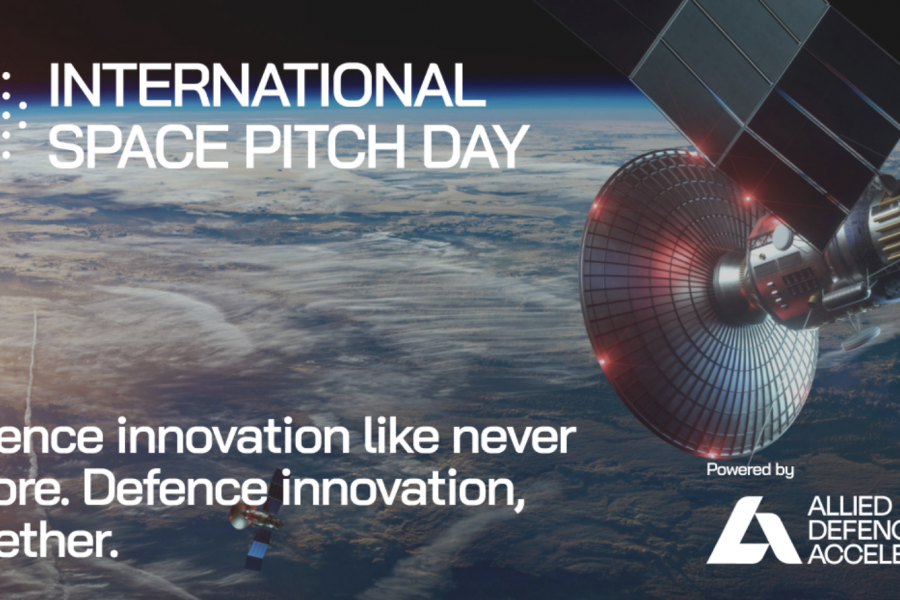Ten companies from four countries won seed money for innovative projects to improve military space technology at the first International Space Pitch Day, hosted online by the United States and United Kingdom, the U.S. Space Force said Nov. 23.
Since early 2019, the U.S. Air Force has held “Shark Tank”-style pitch days where companies try to nab military funding after a short presentation and the swipe of a Pentagon credit card. The first space-centric pitch day came in November 2019, followed by this inaugural, multinational event a year later on Nov. 16.
It is the first time two nations awarded joint defense contracts to foreign companies for technology development, the Space Force said. The service’s Space and Missile Systems Center partnered with the U.K. Defense and Security Accelerator and the Defense Science and Technology Laboratory’s space program, with input from players like U.K. Strategic Command and NATO.
Technology accelerator firm Starburst Aerospace helped choose 15 finalists to participate in the pitch day. More than half earned a piece of a $1 million pot from the Pentagon and the U.K. Ministry of Defense to further their ideas. The money puts them on a path to be able to offer their products for regular military use.
It’s another new step in the Space Force’s effort to strengthen partnerships and build a collaborative military space technology enterprise with other nations. The service relies on other countries for support through organizations like the Combined Space Operations Center at Vandenberg Air Force Base, Calif. Pitch days also broaden the military’s prospective vendor pool to include more small- and medium-size businesses.
“Space is especially exciting with so many ideas brought to the table by these firms, and I’m confident international space cooperation has a bright future,” Department of the Air Force acquisition boss Will Roper said in a release.
According to the British government, the winners and their ideas are:
- 114 AI Innovation: Artificial intelligence-driven tools to analyze and display multiple data streams for military space operations with allied countries and industry partners
- Clearbox Systems: AI-enabled radio spectrum monitoring tool to better connect communications satellites
- Clutch Space Systems: A space operations planning tool with data on weather forecasts, orbit projections, satellite and payload simulations, and more.
- Cognitive Space: Using blockchain technology to “provide a common operational picture of space assets across multiple security levels while providing means of filtering accessible data and actions based on security clearance and need-to-know basis.”
- Precursor SPC: A four-dimensional space weather tool that “improves ionospheric observation granularity by [10 times] while enabling space weather forecasting.”
- Riskaware and Telespazio Vega: A modeling and visualization tool that provides risk and threat analysis for critical space assets and their impact on operations.
- Rocket Communications: An “intuitive and visual system for operators to envision system status, orbits, and predicted events” and to “easily create multiple maneuver options and view/compare them.”
- Slingshot Aerospace: A catalog of orbital data to improve space safety.
- Spire Global UK: A tool to track ionospheric interference with navigation, communications, and missile defense assets.
- Swim.ai: A real-time orbital situational awareness platform with “live digital twin models of all satellites,” and data including “location, attributes, trajectories, and impact of space weather. Alerts will notify operators and commanders of threats of intercept, weather risks, changes in pattern of life, overflights, and resources available for battle planning.”
